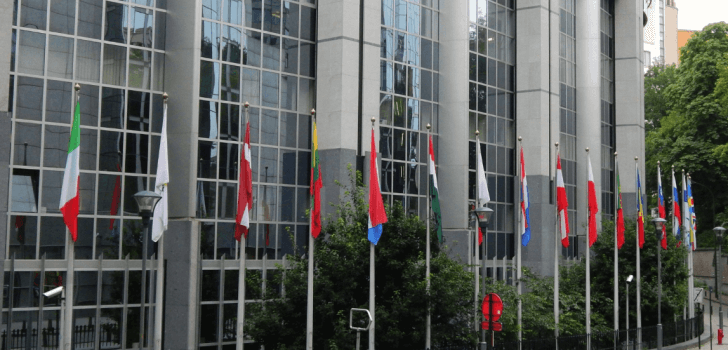The European Union (EU) had an emergency anti-terrorism meeting in Brussels Friday to discuss increased security measures for the Schengen Zone’s external borders. The measures will also apply to EU citizens who normally enjoy free movement within the typically passport-free Schengen Zone.
It was confirmed that at the emergency meeting, EU interior and justice ministers planned to “immediately implement the necessary systematic and coordinated checks at external borders, including on individuals enjoying the right of free movement.”
It is now reported that EU officials are engaging in secret talks over stopping borderless travel as the migration crisis continues to push countries towards political crisis. The French interior minister, Bernard Cazeneuve, announced after Friday’s meeting that border controls would continue on the nation’s frontiers “until the terrorist threat is over.”
The Schengen Zone was created by the Schengen Treaty and consists of 26 countries, including most of the European Union, Switzerland, Liechtenstein, Norway and Iceland. The treaty provides that citizens generally may travel freely within the zone. Currently, the United Kingdom and Ireland are not Schengen members, while Cyprus, Croatia, Romania and Bulgaria will become members once the EU decides they are ready to join.
In an interview with the Washington Post on Friday, German politician Thomas Maizière said that on one hand, “we cannot close Europe,” but on the other hand, “we cannot open Europe totally for millions and millions of poor people in the world or even for all of those coming from conflict zones. Impossible.”
Hungary Prime Minister Viktor Orban said the EU should acknowledge that migrants come from areas involved in military conflict with EU members. “We are considered enemies in those countries, and the acts of terror committed in our areas are considered war successes over there.”
Orban added that, “The founding [Schengen] treaty is currently an obstacle to this and I believe it needs to be reconsidered.”
Austrian Chancellor Werner Faymann told EU leaders to fight the urge to close borders within the Schengen zone. He said that doing so “would be the end of Schengen and the European idea.
Stay Connected